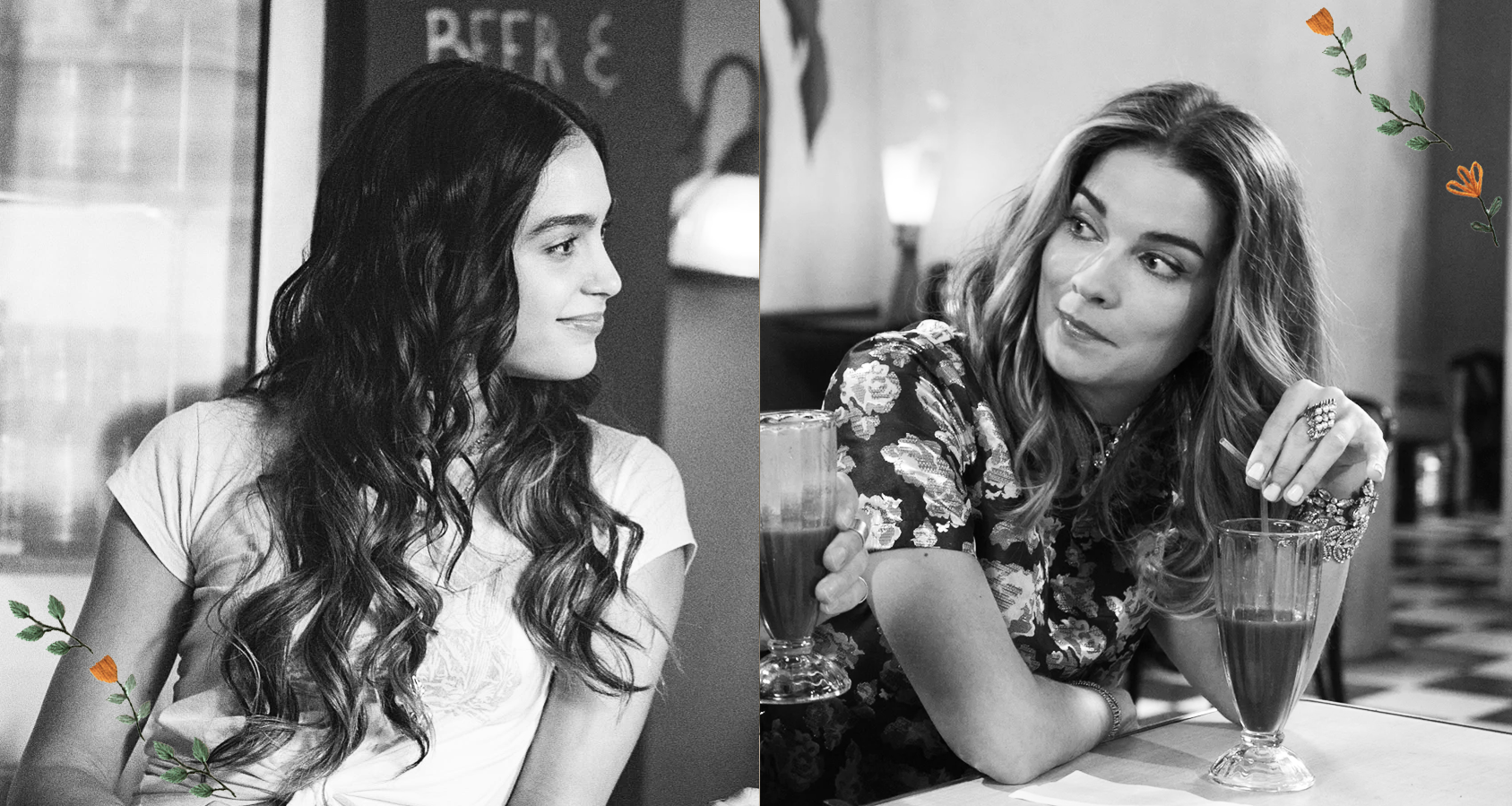We women are rewarded for being pretty, especially a particular, male-identified, cis, hetero type of pretty — skinny, long hair, etc. It’s the sort of look that gets you lots of compliments and Instagram followers. It’s a look that’s wildly overrepresented on TV, even when it makes no logical sense (how did those residents of Seattle Grace find time to get their hair blown out?!?!).
Of course, there’s been push back. And thanks to it, we have more women of different sizes, more definitions of beauty than ever before. But the “pretty girl” type persists as an ideal we’re all supposed to strive for. That’s why I loved the arcs of Alexis Rose in Schitt’s Creek and Lyn Hernandez in Vida — they expose the myth of the pretty girl by centering her perspective.
It may sound counterintuitive, what with how often we see them, but pretty girls don’t usually get to be the heroes of their own stories. They can be beautiful, unknowable objects (a la Margot Robbie in Once Upon a Time in Hollywood), vapid narcissists who deserve a little humiliation (one million seasons of America’s Next Top Model and its clones), or corpses over which men can learn things or hatch revenge plots (see nearly every procedural ever). But something new is happening on Schitt’s Creek and Vida — pretty girls are getting an interior life and it’s more interesting, funny, and feminist than we could have imagined.
Alexis and Lyn both start their shows as the pretty ideal. They fit the type and have gotten the rewards in terms of men’s attention and society’s validation. In most shows, that’d be it. They’d be a love interest or foil. But in Schitt’s Creek and Vida, we see what it’s like to live in their strappy sandals and it turns out, it’s very limiting. The “rewards” of pretty-dom come with serious downsides — relying on men for validation, having to change who you are for your partner of the hour, only having a surface-level understanding of who you are.
And both Lyn and Alexis are not happy. They don’t have to reject prettiness, but they do have to find things to value about themselves outside of their looks (and ability to attract rich men). Lyn’s journey is about learning to value her aesthetic point of view, run the bar, and find a core to herself that’s not selfish or superficial. Alexis goes back to high school, gets her associates, starts a company, and re-negotiates her relationship to men, starting to see them as actual people, not cash machines or status boosters.
I’d love to talk about the ways Lyn and Alexis are similar all day. I’d love to just talk about women and how far we’ve come. But there’s a problem. You see Annie Murphy’s Alexis Rose is white and Melissa Barrera’s Lyn Hernandez is not and their paths diverge in all the sorry, frustrating, predictable ways you can imagine. Murphy got that Emmy nomination and Barrera didn’t. Likewise, Schitt’s Creek is getting all this critical love and touted as a “universal” story that’s changing the world. And it is a great show! A ‘universal’ (whatever that means) show! But so is Vida.
In fact, the two shows have a lot of similarities in addition to their deconstructing the ideal of the pretty girl. They both focus on very specific communities and don’t really venture out of them — Schitt’s Creek has its rural Canadian town and Vida has Boyle Heights. Both have a fish-out-of-water premise with our heroes landing in those communities as outsiders and having to adjust their identities accordingly. Both shows are unapologetically queer and have been lauded for that prospective. Both are really great. One also just happens to be white.
And to the white folks go the prizes even when Lyn’s very latinaness is part of what makes her so groundbreaking. Women of color are even less likely to have our agency portrayed on-screen than our white counterparts and when you throw in sexuality, it gets even more fraught. Women of color are portrayed as the outside temptresses, the other women, the ones with the destructive sexuality that threatens the white family (see the conservative uproar over WAP, like it had anything to do with them). Or we’re sexless mammies come to nurture you or make you laugh (from Gone with the Wind to Bridesmaids). Lyn is none of those things — she’s a flawed Chicana who’s learning to be better, to trust herself, to make her own definition of success. As such she’s just as, if not more, interesting/hilarious/important than Alexis. I just wish she’d be recognized as such.

